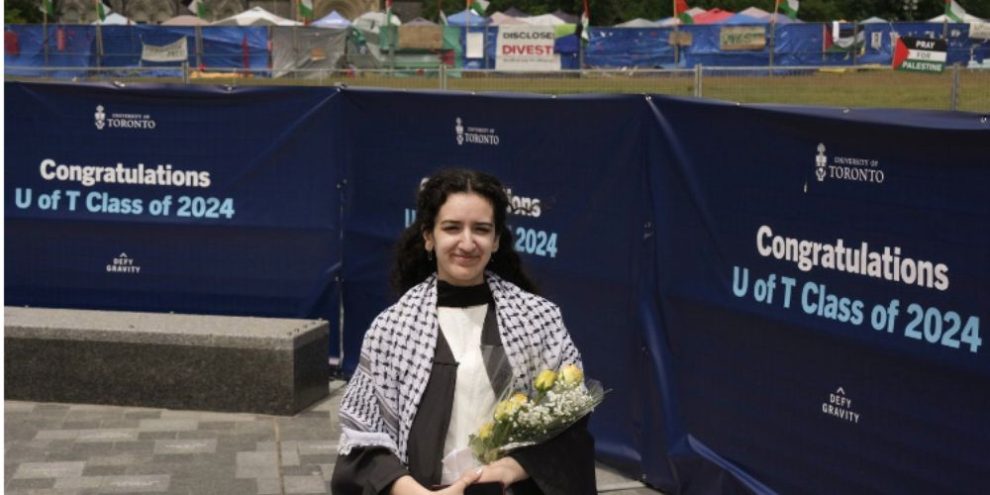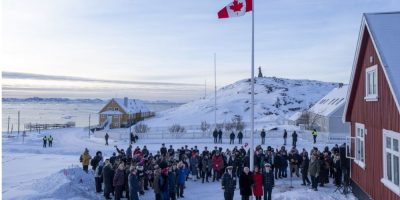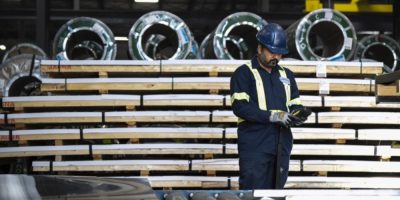
Spring convocation season got underway at the University of Toronto on Monday, with fresh graduates crossing the stage to receive their diplomas while a pro-Palestinian encampment remained on campus not far from where the ceremony was taking place.
A few signs of students' opinions on the Israel-Hamas war cropped up during a ceremony that proceeded smoothly, as some new grads held up Palestinian flags or wore scarves bearing the word "Palestine" as they crossed the stage.
More than 30 ceremonies are scheduled to take place through June 21 as the university seeks legal action to end the encampment near Convocation Hall, where thousands are set to collect their diplomas.
"We hope everyone will allow our graduating students to have their moment without disruption or interruption," U of T wrote in a statement.
At the first graduation ceremony Monday afternoon, several graduating students wore scarves emblazoned with the words "Palestine" and Palestinian flags. A few others wore keffiyehs, some held tiny Palestinian flags and at least one graduate unfurled a larger Palestinian flag and held it up as she walked across the stage.
Another student held up a "Free Palestine" banner.
The university sought to clear the pro-Palestinian encampment on campus – which was set up in early May – before convocation began through an urgent court injunction, but the presiding judge said the earliest a hearing could be held is June 19 to give protesters a fair opportunity to respond.
The delay means most of the graduates and their family members attending ceremonies at the downtown campus will likely pass by the fenced-in camp, and the university has expressed concern about potential disruptions.
But protesters have said they don't see how their presence would disrupt graduation events, and that they're resolved to stay until the university meets demands around divestment of companies profiting from Israel's offensive in Gaza.
Dina Elbaz, who graduated Monday with an honours bachelor of arts degree, expressed her support for the protest as she posed for photos while holding a Palestinian flag, with the encampment in the background.
"We're very proud to be a part of this moment right now," she said.
“I hope for the unity of all students and happiness and peace, of course."
On Monday morning, protesters held a vigil on campus for those who died in Gaza. The vigil included a number of U of T faculty members who wore ceremonial robes.
"As we head into graduation or convocation season, we are thinking about those who don't have a stage left to walk on, those who aren't able to graduate because they've been murdered," encampment spokesperson Sara Rasikh said.
She said graduating students who are part of the encampment are "thinking about their friends and their families in Gaza."
"It doesn't feel like a joyous time to us."
A number of high-profile Jewish organizations who said they were granted intervener status at the injunction court proceedings voiced their opposition to the encampment at a news conference near campus earlier in the day.
"We would have hoped that Jewish students would be able to participate in convocation free from having an encampment that intrudes on their sense of joy and their sense of celebration – as all members of the University of Toronto community should be able to do," said Rabbi Seth Goren, chief executive officer of Hillel Ontario.
Before convocation, the university said it had heard from some students and parents concerned about the encampment's impact on convocation.
Among emails submitted to court in support of its injunction application, the university shared a message from a parent of a graduating student who asked whether the convocation ceremony could be moved to "a safer location." The email said one of the family members planning to attend is a Holocaust survivor and walking by the encampment would be distressing.
On Monday, families and soon-to-be graduates were seen lining up to get inside the ceremony venue without issue, as some university security personnel were seen nearby.
The University of Toronto has said it is taking extra precautions over the next three weeks to ensure the safety of graduates and their guests.
"The 34 ceremonies that begin today for more than 13,000 graduating students are a time for celebration and hope," it said Monday.
"We also recognize that this is a challenging time for many in our community and we acknowledge the pain and suffering felt by those impacted by the conflict in the Middle East."
This report by The Canadian Press was first published June 3, 2024.





